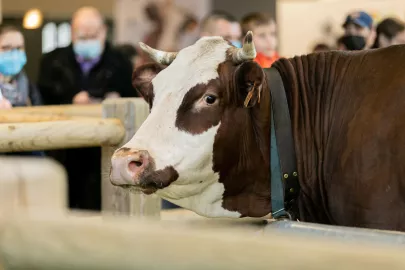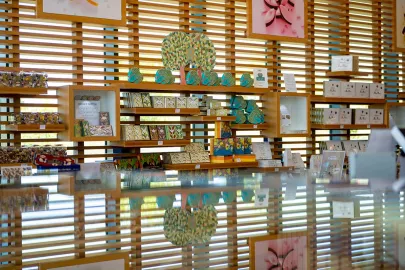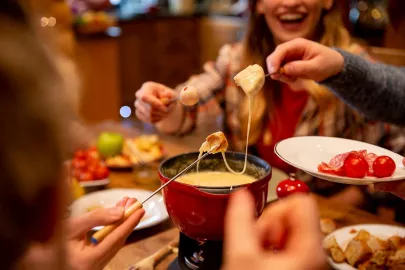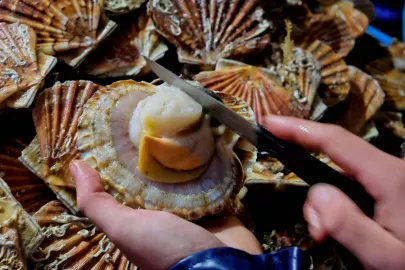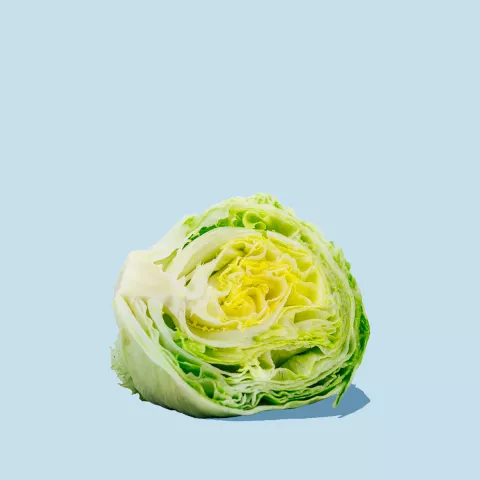Foodies, wine aficionados, and lovers of all things French are no strangers to the word gourmand. This frequently used term beautifully illustrates a passion for all things delectable and is used in a variety of ways. However, with no direct English translation, finding an equivalent term for this French word can be a bit complicated.

Dans cet article
Additionally, the term gourmand is used as both a noun and an adjective, which makes finding a direct translation even trickier. We’ve asked seven food and wine experts to explain what the term gourmand means to them. Read on to learn more -- and be prepared to feel a bit hungry along the way!
“The closest translation I could think of would be someone that finds pleasure in eating and drinking, though it’s more than a love of food, but rather the love of indulging in it. Kind of like gluttony, but not quite. There’s no negative connotation with the word gourmand. Luxurious (but strictly relating to food) could be a synonym.” - Sam Schwarz, co-chef at Fradei (Brooklyn, New York) & former chef at Septime (Paris, France)
“The significance of the word gourmand was something very important to my chef, Guillaume Iskandar (chef at Garance, formerly of Arpège). To me, gourmand is about feeding people. Like, really feeding people. Gastronomy can be gourmand, but the main goal has to be feeding people, not making the food look pretty, or ‘playing’ with the food.” - Ryan Lim, former chef and current Export Manager at Paris Wine Company (Paris, France)
"A gourmand is similar to what Americans would call a foodie, but on a more gastronomic scale. A gourmand is someone who loves and appreciates good food and wine, and the company that comes along with it." - Lane Nieset, Expat & Paris-based Travel Journalist (Paris, France)
“In my opinion, the word gourmand is very subjective. It means beautiful and good at the same time. It appeals to our five senses. If there were to be a criteria to qualify something as gourmand, this is what it would be: To the eye, it shines, it's generous, it makes us want to use our four other senses, even before tasting the food in front of us. Our sense of smell is stimulated by scents that evoke memories, a grandmother's dish (impression of memory, Proust's madeleine, etc.) You can hear the crunch when a gratin still crackles when it comes out of the oven, or when you first dip your spoon into the pastry of a millefeuille.
For taste, it’s a balance of sweet, salty, creamy, sour… all of these things are important. It should not be aggressive, but rather comfortable. And finally the different textures must coat the palate: crunchy, smooth, hot, fresh. Voila, my definition of the world gourmand.” - Romain Roudeau, chef at Juveniles Wine Bar (Paris, France)
“I must admit that I have been searching for many, many years to find the exact English translation of gourmand and still haven’t found it, even after having spent half of my life in France and half of my life in the United States! As a noun, some people suggest glutton, but that has a negative connotation, and when I think of someone who is a true gourmand, it’s generally somebody who loves food and wine but is also very positive and jovial.
Others suggest gourmet, but that often sounds elitist to foreigners, and a true gourmand is rarely elitist. As an adjective, it’s even more challenging to find an exact translation, especially in the world of wine where un vin gourmand is often used to describe a wine that’s very seductive, a wine that invites you to drink it with relish. I’ve sat through several presentations by French winemakers addressing English speakers who use everything from greedy to sweet, neither of which is appropriate. I eventually decided that it should be a thesis topic!” - Christian Holthausen, Director of Export Sales & International Communications at Champagne AR Lenoble (Paris, France)
“For me, a gourmand would be someone who is well-versed in the art of eating. Someone who is familiar with a large range of ingredients, cooking techniques, cultural culinary traditions around the world, and dining etiquette. And I also would add, in my ideal definition, that they have a love for all of the above.” - Alexander LaPratt, Master Sommelier at Atrium DUMBO (Brooklyn, New York)
“In France, a gourmand (or gourmande) is someone who deeply enjoys eating—and never misses an opportunity to indulge. Sometimes it's borderline negative, meaning more like greedy, but I usually hear it used in a playful or loving way. The French also use the term to colloquially describe someone who loves sex, which, if you think about it, isn't too surprising given the sensual nature of both activities. (This is, after all, the land of great champagne and oysters.)
But to me, gourmand has a more innocent association. It's someone who innately loves food and it begins in childhood. When I hear the word, I think of my niece Rosalie, when she was two years old, eating a chocolate brownie as if it were a rare delicacy. With each careful bite, she'd close her eyes tightly and lean her head back in delight. I think of my own toddler daughter, Mimi, who was interested in food even before she had teeth — gumming crusty pieces of baguette (and later, with teeth) gnawing leftover pieces of saucisson or the end hunks of parmesan.
Finally, a gourmand is someone you want to have around — unlike the modern foodie, who will rattle off ten new sorta-healthy brunch places, the gourmand will lead you to the one century-old bistro that you'll never forget.” - Caitlin Gunther Raux, Expat & Paris-based Food Journalist (Paris, France)
Contributeur

Editor






